Plano Water Heater Replacement Cost: Everything You Need to Know
If you're looking for water heater replacement services in Plano, it's essential to have a clear understanding of the costs involved. Whether you're considering switching to an electric or gas water heater, being aware of the potential expenses is crucial. By taking the time to research and gather information about the various cost factors, you can make an informed decision that meets your budgetary constraints while ensuring a dependable supply of hot water for your home. Don't underestimate the importance of conducting thorough research before investing in a new water heater. Our comprehensive guide on water heater replace costs will help you make that decision.

When do you need to replace a water heater?
Like any appliance, water heaters have a limited lifespan and will eventually require replacement. Knowing when to replace a water heater is crucial to avoiding sudden breakdowns and ensuring a steady supply of hot water.
One key indicator that it may be time for a water heater replacement is the age of the unit. On average, water heaters last between 8 and 12 years. If your water heater is approaching or has surpassed this lifespan, it is likely nearing the end of its efficiency and may require frequent repairs. Considering a replacement at this point is a wise decision to prevent sudden malfunctions and potential water damage to your home.
If you notice a decline in your water heater's performance, it may be time to consider replacing it. Signs of diminished performance include inconsistent water temperature, longer heating times, insufficient hot water supply, or frequent pilot light extinguishing. These issues can be indicative of a failing heating element or a buildup of sediment within the tank, both of which can significantly impact the unit's efficiency. In such cases, replacing the water heater will help restore reliable and efficient hot water supply.
Leakage or visible signs of corrosion are another clear indication that a water heater replacement is necessary. Over time, the constant exposure to water and heat can cause rusting and deterioration, leading to leaks that compromise the integrity of the tank. Not only can these leaks result in water damage, but they also indicate that the water heater is no longer safe to use. Promptly replacing the unit is crucial to prevent any potential hazards.
In Plano, a rapidly growing city known for its thriving community, finding a reliable service provider for water heater replacement is paramount. Fortunately, there are reputable plumbing companies in the area that specialize in water heater installations and replacements. By enlisting the expertise of these professionals, you can ensure a seamless transition to a new water heater, tailored to meet your specific needs and budget. Being proactive in recognizing the signs of a failing water heater is key to ensuring uninterrupted hot water supply and preventing any potential damage to your home. By paying attention to the age, performance, and condition of your water heater, you can determine when a replacement is necessary. Consulting with a trusted plumbing service in Plano will provide you with the expertise and assistance required to select and install a new water heater that will serve you well for years to come.

What affects the cost of replacing a water heater?
There are several factors that can affect the cost of replacing a water heater:
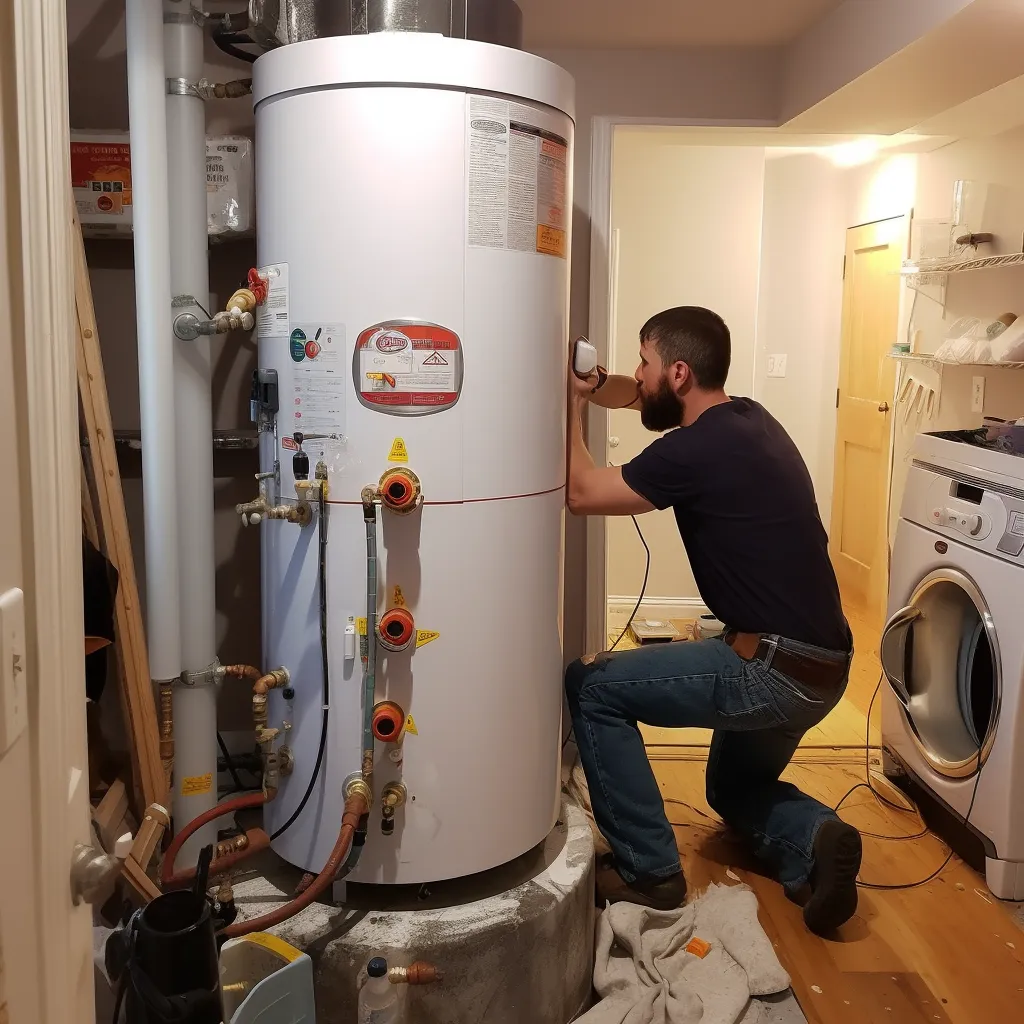
The type of water heater you choose will play a significant role. There are various options available, including traditional tank heaters and more advanced tankless models. Tankless water heaters tend to be more expensive upfront, but they can be more energy-efficient in the long run.
Another factor to consider is the size of the water heater. The size you need will depend on the demand for hot water in your household. Larger families or homes with multiple bathrooms will generally require a larger capacity water heater, which can increase the cost.
The installation process itself can also impact the cost. If your existing plumbing and electrical connections are compatible with the new water heater, the installation may be relatively straightforward. However, if modifications or upgrades are necessary, such as replacing old pipes or updating electrical systems, this can add to the cost.
The cost of labor and materials can vary depending on the plumber or contractor you choose for the job. It's essential to obtain multiple quotes and compare prices to ensure you're getting a fair price for the replacement.
Any additional features you opt for, such as a digital display or energy-saving options, can also increase the overall cost. Lastly, it's worth considering the warranty and maintenance plans offered by the water heater manufacturer. While this might not directly impact the initial cost, it can provide long-term benefits and peace of mind.

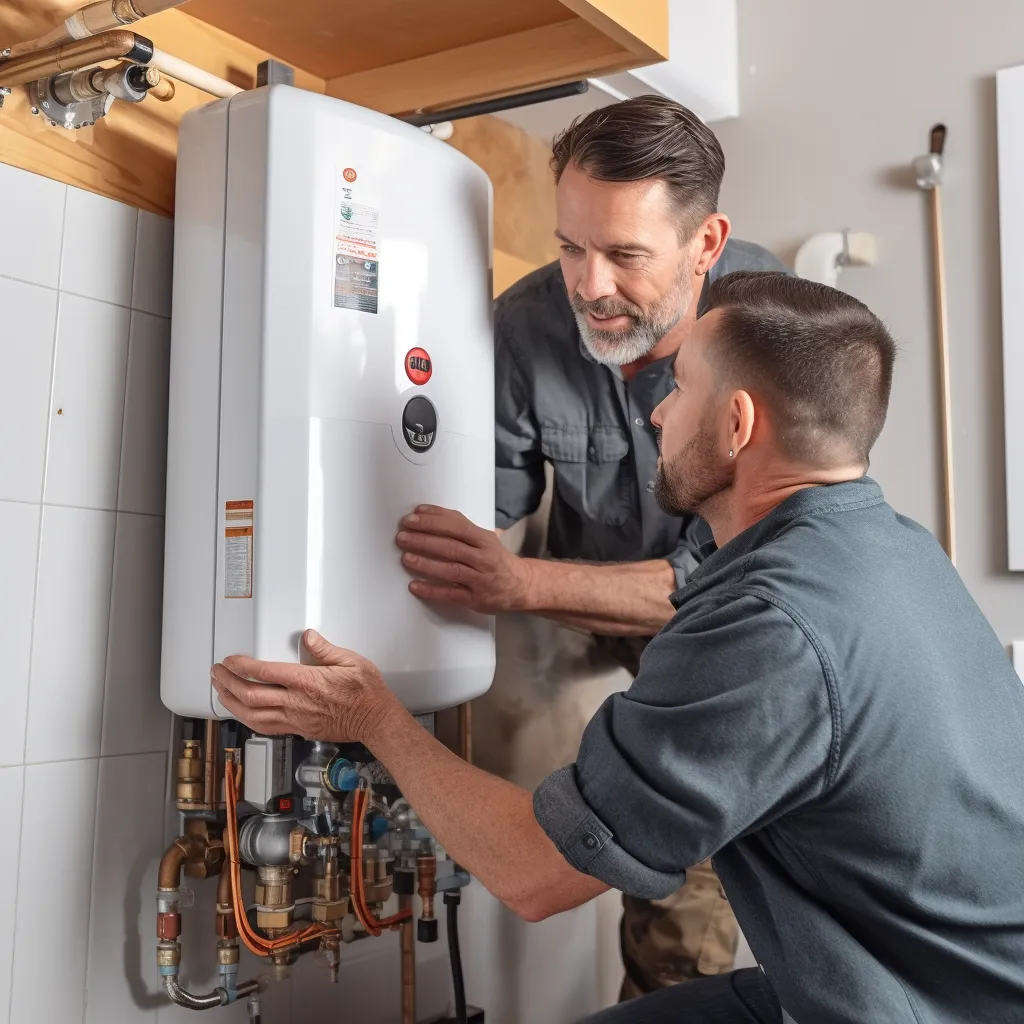
It's important to consider energy-efficiency
Upgrading to a more energy-efficient water heater not only helps to reduce your carbon footprint but also saves you money in the long run.
One option for energy-efficient water heater replacement is a tankless water heater. Unlike traditional water heaters that constantly store and heat a large amount of water, tankless water heaters are designed to heat water on-demand. This means that they only heat the water you actually need, resulting in significant energy savings. Tankless water heaters have a longer lifespan compared to traditional ones, reducing the need for frequent replacements.
Another energy-efficient option is a heat pump water heater. These innovative systems use electricity to move heat from the air or ground to heat the water, rather than generating heat directly. By leveraging the heat from the environment, heat pump water heaters are able to deliver hot water while using significantly less energy compared to traditional electric water heaters.
It's also worth looking into high-efficiency gas water heaters. These models utilize advanced combustion techniques to maximize energy efficiency and minimize heat loss. With improved insulation and enhanced burner designs, high-efficiency gas water heaters can help to reduce energy consumption and save you money on your utility bills.
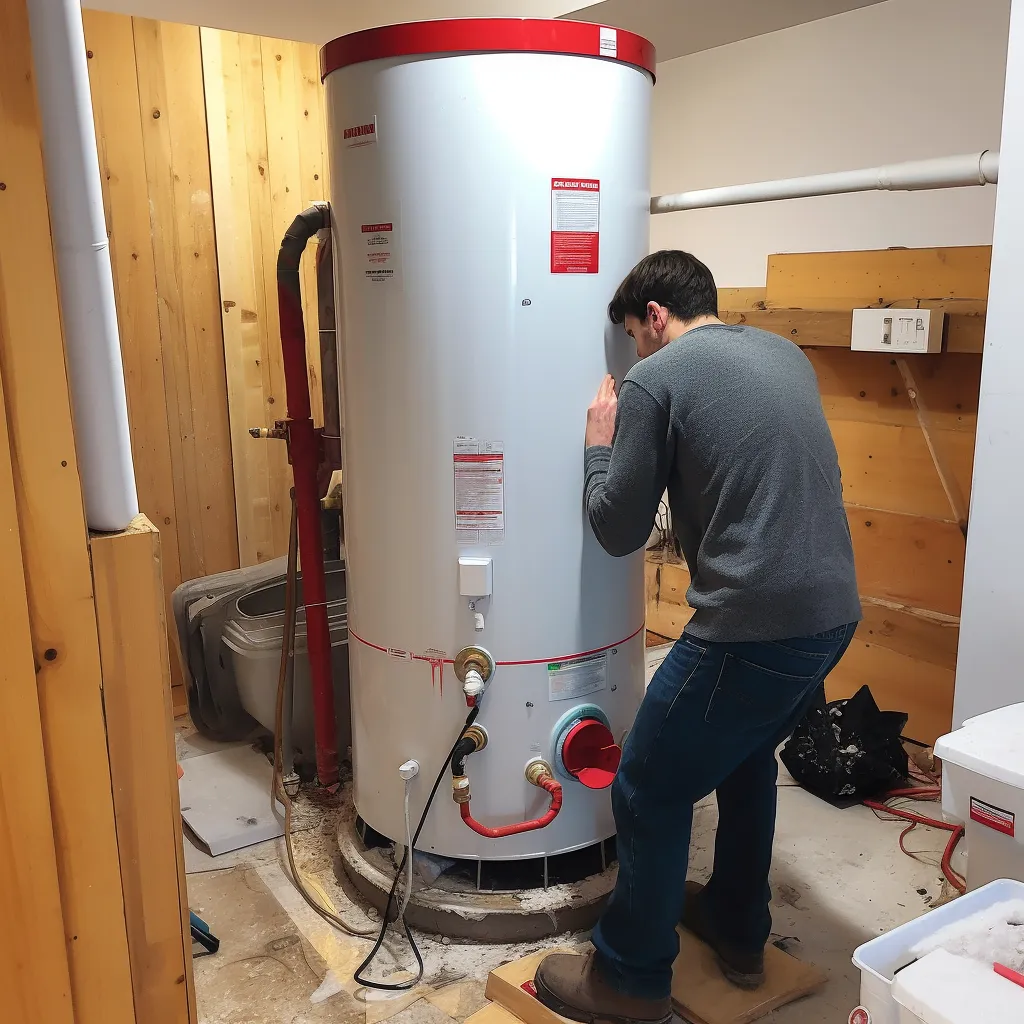
How to determine the size of the water heater you need
Calculating the size of the water heater you need for your home is crucial in ensuring efficient and reliable hot water supply. Here's a step-by-step guide to help you determine the right size for your water heater replacement.
Estimate the Total Hot Water Demand: Start by identifying the maximum hot water demand your household may have. Consider factors such as the number of family members, daily routines, and appliances that require hot water. You can estimate that an average person uses about 10 gallons of hot water per day.
Calculate Peak Hourly Hot Water Demand: Determine the peak hour when hot water usage is at its highest, such as in the morning rush or the evening. Multiply the maximum hot water demand per person by the number of occupants in your home to get an estimate of the peak hourly demand.
Consider Recovery Rate: The recovery rate refers to the amount of time it takes for the water heater to heat a fresh supply of water. It is typically provided by the manufacturer and expressed in gallons per hour. Ensure the water heater you choose can meet or exceed your calculated peak hourly demand.
Factor in the First Hour Rating (FHR): The First Hour Rating indicates the amount of hot water a fully heated tank can deliver during the first hour of use. It considers both the tank capacity and the recovery rate. The FHR should align with your peak hourly demand; otherwise, you may run out of hot water.
Evaluate Tank Size: Water heaters come in various tank sizes, ranging from 20 to 100+ gallons. Consider the available space in your home and choose an appropriately sized tank. Keep in mind that larger tanks may require more energy and take up more space.
Energy Efficiency: Look for an energy-efficient water heater with a good Energy Factor (EF) rating. This will not only help reduce your utility bills but also minimize the environmental impact.
Seek Professional Assistance: If you're unsure about the calculations or need further guidance, don't hesitate to consult a professional plumber or water heater specialist. They can assess your hot water needs accurately and recommend the best water heater replacement for your home.


Research the different types of water heaters
There are several different types of water heaters available on the market. Each type offers its own set of advantages and disadvantages, so it's important to research and understand the options before making a decision. Whether you are in need of a water heater replacement or simply want to explore your options, here are some of the most common types of water heaters to consider:
Conventional Storage Tank Water Heaters: These are the most traditional and widely-used type of water heaters. They store and heat a large amount of water in a tank, which is then distributed throughout your home as needed. While they are relatively affordable, their energy efficiency can vary depending on insulation quality. Additionally, you may run out of hot water if the tank is depleted.
Tankless Water Heaters: As the name suggests, tankless water heaters do not have a storage tank. Instead, they provide hot water on-demand by quickly heating water as it flows through the unit. This type of water heater is more energy-efficient than conventional ones as it only heats water when it is needed. However, they tend to have a higher upfront cost.
Heat Pump Water Heaters: These water heaters use electricity to move heat from the air or ground to heat the water. Heat pump water heaters are known for their high energy efficiency and can significantly reduce energy costs in the long run. However, they require a specific space with sufficient air circulation for optimal operation.
Solar Water Heaters: Solar water heaters utilize energy from the sun to heat and provide hot water. They consist of solar collectors, which absorb sunlight and transfer the heat to the water. While solar water heaters can be expensive to install, they are highly energy-efficient and can save you money over time.
Condensing Water Heaters: Condensing water heaters are designed to maximize energy efficiency by utilizing the exhaust gases to preheat the incoming water. This process extracts additional heat from the flue gases, resulting in higher efficiency compared to traditional water heaters. However, they are typically more expensive than conventional models.
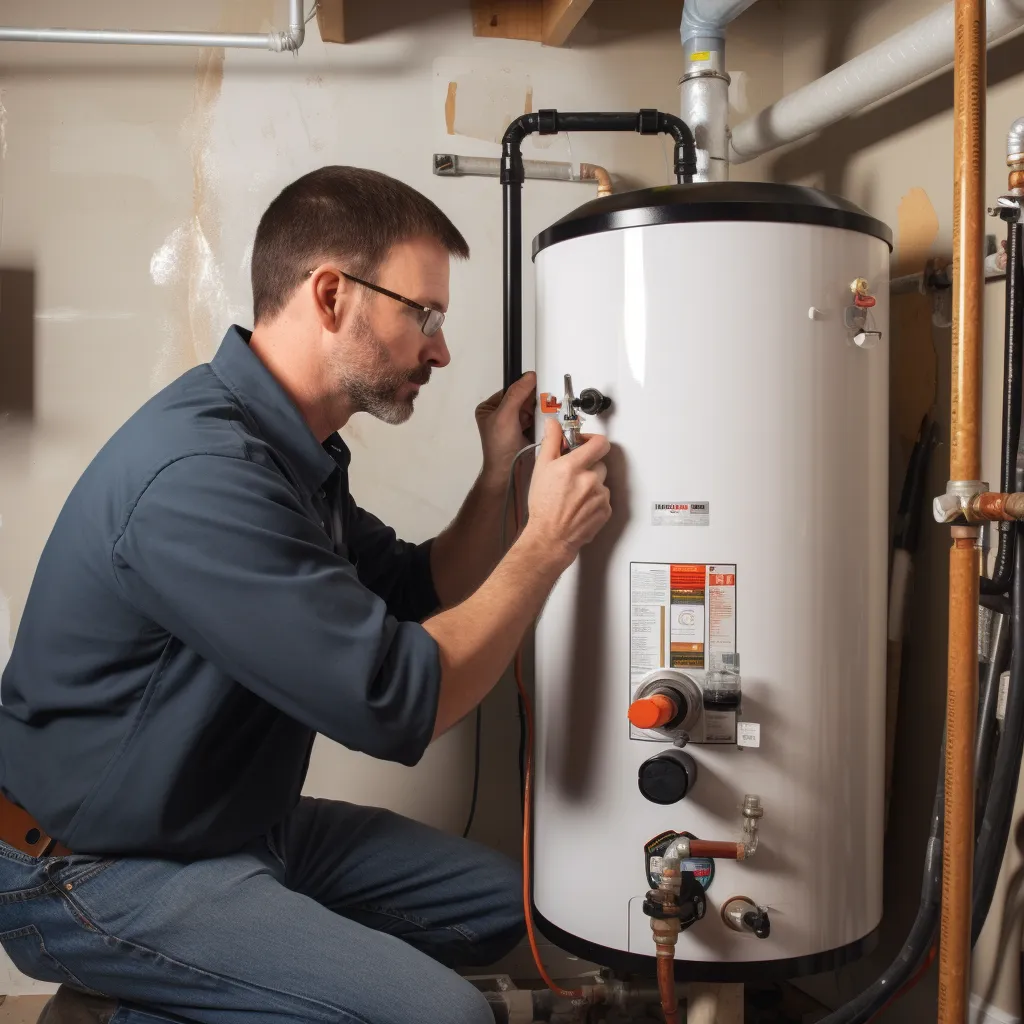
Cost of each type of water heater
When it comes to water heaters, the cost can vary depending on the type of water heater you choose. There are several different types available, each with its own advantages and price range.
Conventional Storage Tank Water Heater: This is the most common type of water heater. It consists of a large tank that stores and heats water. The cost for a conventional storage tank water heater replacement in Plano can range from $500 to $1,500, depending on the size and efficiency of the unit.
Tankless Water Heater: Tankless water heaters are becoming more popular due to their energy efficiency and space-saving design. Instead of storing hot water, they heat water on-demand as it passes through the unit. The cost for a tankless water heater replacement can range from $1,000 to $3,000, depending on the brand and capacity.
Heat Pump Water Heater: Heat pump water heaters use electricity to transfer heat from the surrounding air or ground to heat the water. They are highly efficient but have a higher upfront cost. The cost for a heat pump water heater replacement in Plano can range from $1,500 to $3,500, depending on the capacity and installation requirements.
Solar Water Heater: Solar water heaters use energy from the sun to heat the water. They are environmentally friendly but require an initial investment for installation. The cost for a solar water heater can range from $2,500 to $6,000, depending on the size and complexity of the system.
Cost of installation and ongoing maintenance

It's essential to consider both the installation cost and ongoing maintenance requirements. The cost of installation will vary depending on various factors such as the type and size of the water heater, the complexity of the installation process, and any additional plumbing work required.
Generally, the average cost of water heater installation in Plano ranges from $800 to $1500. However, keep in mind that this is just an estimate, and the actual cost may vary. It's always a good idea to obtain multiple quotes from reputable plumbing professionals to ensure you get the best price. In addition to the installation cost, it's crucial to factor in ongoing maintenance expenses.
Regular maintenance is essential to prolong the lifespan of your water heater and ensure its optimal performance. The cost of maintenance will depend on the type of water heater you have. For traditional tank water heaters, regular maintenance includes flushing the tank to remove sediment buildup, inspecting and replacing the anode rod (if necessary), and checking the pressure relief valve.
It is recommended to schedule a professional inspection and maintenance at least once a year, which can cost anywhere between $100 to $200.
On the other hand, tankless water heaters require less maintenance but may need periodic descaling to remove mineral buildup. This process can be done by a professional plumber or DIY with a descaling kit. The cost of descaling can range from $150 to $300, depending on the complexity of the job.
It's important to note that neglecting regular maintenance can lead to reduced efficiency, increased energy consumption, and even premature failure of your water heater. By investing in proper maintenance, you can save on energy bills and potentially avoid costly repairs or early replacements.
The cost of water heater installation and ongoing maintenance depends on various factors. It's wise to gather multiple quotes for installation and budget for regular maintenance to ensure the longevity and efficiency of your water heater investment.
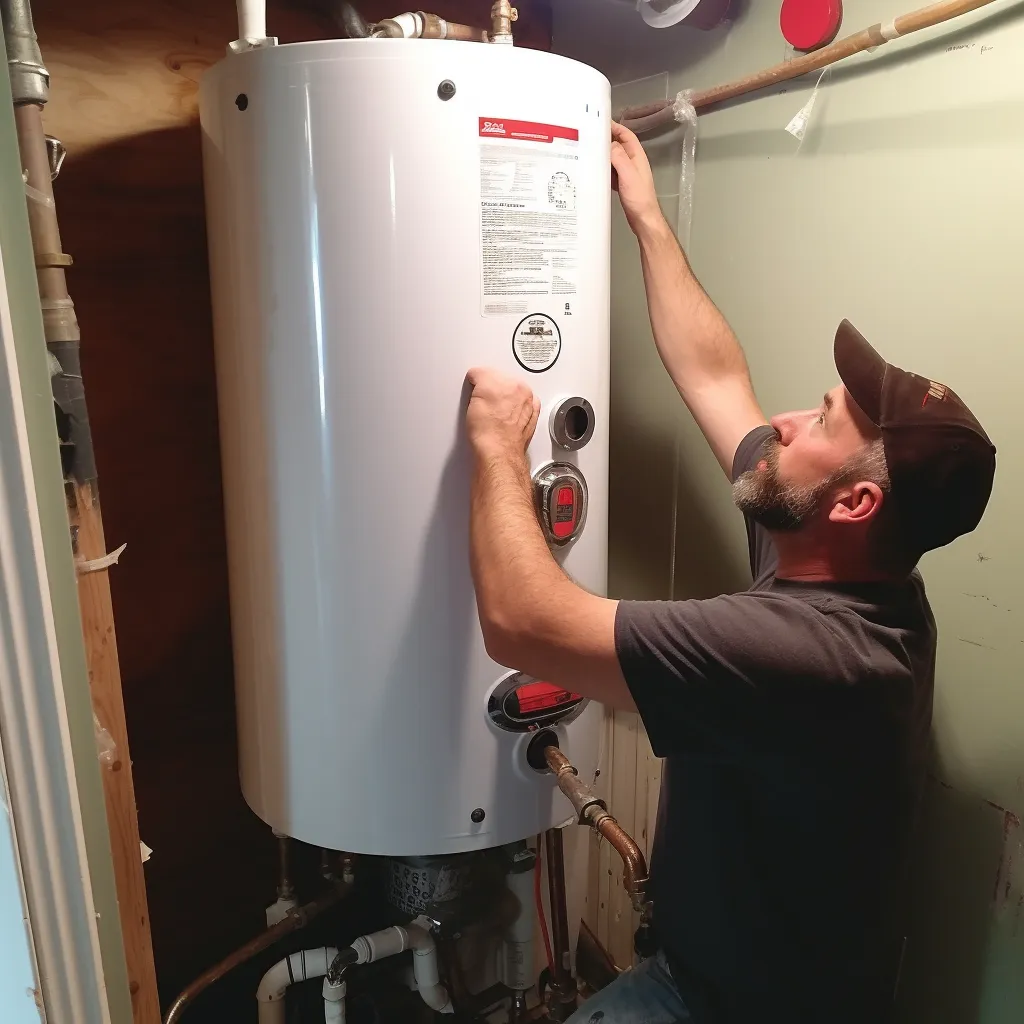
How to get an accurate estimate for the cost of a water heater
If you're searching for water heater replacement in Plano, it's natural to wonder about the potential cost and the importance of conducting thorough research. Determining the true expenses associated with replacing your water heater, including installation, can be challenging without the right information.
Consider your household size and hot water usage patterns. Understanding these factors will help you determine the appropriate size and type of water heater that best suits your needs. Firstly, take into account the number of people living in your household. If you have a large family, you're likely to have higher hot water demands compared to a smaller household. With more individuals using hot water for bathing, laundry, and dishwashing, a larger water heater may be necessary to ensure an adequate supply of hot water. Secondly, consider your hot water usage patterns. Do you tend to use hot water at multiple times throughout the day, or is your usage concentrated during certain peak hours? Knowing this will help you determine the capacity and recovery rate required for your water heater.
Gather quotes from local plumbing companies to determine the installation and upgrade costs for your new system. By doing so, you can ensure that you're making an informed decision and getting the best value for your money. With advancements in technology, water heaters have become more efficient and cost-effective. However, it's essential to hire a reputable and experienced plumber for the installation process. By obtaining quotes from multiple plumbing companies, you can compare prices, services, and warranties to find the most suitable option for your needs. When requesting quotes, provide detailed information about your current water heater system, including its capacity, fuel type, and any specific requirements or preferences you may have for the replacement. This will enable the plumbing companies to provide accurate estimates tailored to your unique situation.
Consider the cost of the water heater itself. The price of the new water heater will vary depending on various factors such as the type, size, and brand. It is crucial to carefully consider these factors to ensure that you make the right choice for your specific needs. Firstly, you need to determine the type of water heater that suits your requirements. The two most common types are conventional tank water heaters and tankless water heaters. Conventional tank water heaters are more affordable upfront but have a shorter lifespan compared to tankless alternatives. On the other hand, tankless water heaters have a higher initial cost but offer long-term energy savings and a continuous supply of hot water. Next, consider the size of the water heater. The size should be suitable for your household's hot water demands. A water heater that is too small may not be able to keep up with your needs, while one that is too large may waste energy and result in higher utility bills.
How to save money on installing a new water heater
nstalling a new water heater can be expensive, but there are a few tips that can help you save some money in the process. Here are some cost-saving tips to consider when it comes to water heater replacement:
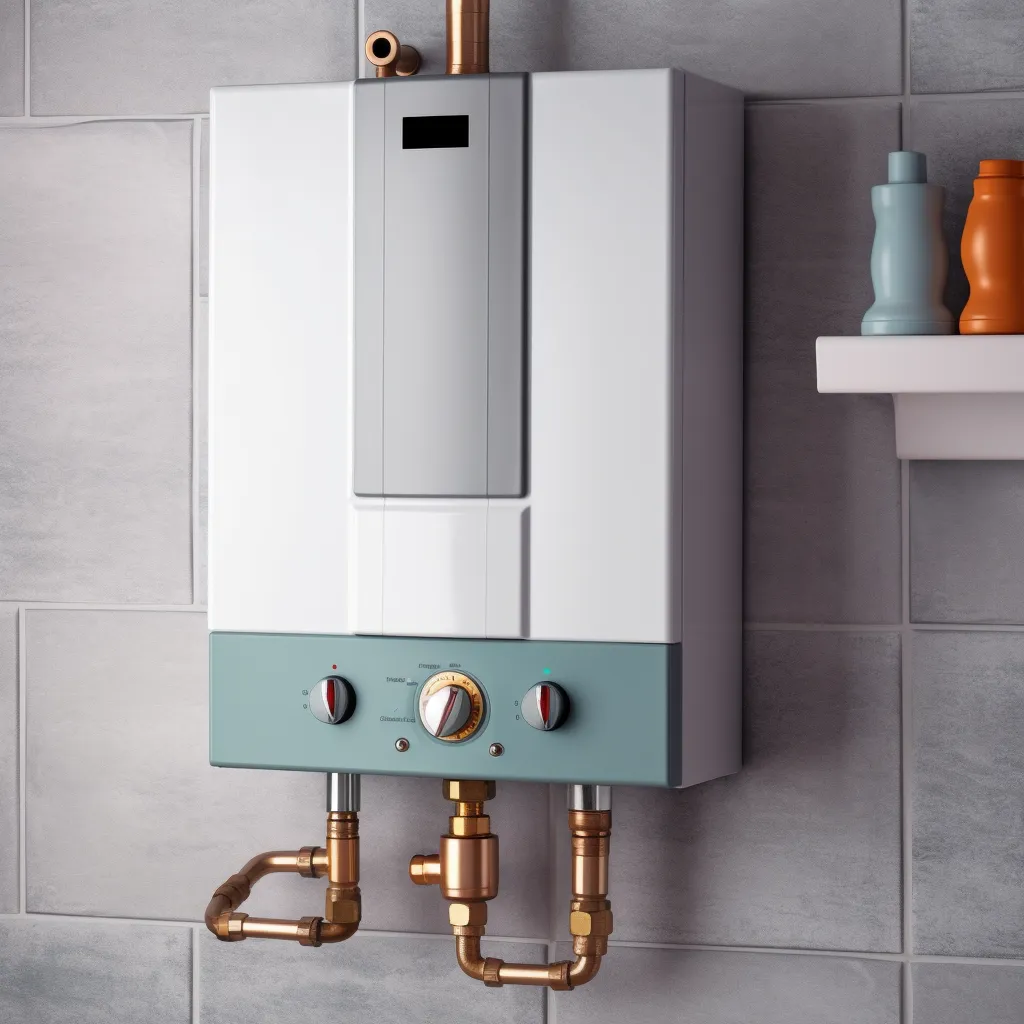
Shop Around for the Best Deals: Before making a decision, take the time to research and compare prices from different vendors in Plano. By doing so, you can ensure that you are getting the best deal available for your water heater replacement.
Consider Energy-Efficient Options: Energy-efficient water heaters may be more expensive upfront, but they can significantly reduce your monthly energy bills in the long run. Look for options that have a high energy-efficiency rating, such as a tankless water heater or a heat pump water heater.
Opt for Proper Sizing: A water heater that is too big for your needs will not only cost more upfront but also waste energy in the long run. On the other hand, a water heater that is too small may not provide sufficient hot water. Make sure to consult with a professional to determine the right size for your household's hot water needs.
DIY or Professional Installation: If you have experience with plumbing and feel confident in your abilities, you may choose to install the water heater yourself. However, it is crucial to prioritize safety and ensure you follow all local building codes. If you are not comfortable with DIY installation, it is best to hire a professional plumber to handle the water heater replacement.
Take Advantage of Rebates and Discounts: Check if there are any available rebates or discounts for water heater replacements in Plano. Many utility companies or local government agencies offer incentives for upgrading to energy-efficient models. Take advantage of these opportunities to save some money.
Regular Maintenance: Once you have your new water heater installed, make sure to perform regular maintenance to prolong its lifespan and optimize its performance. Regular flushing, checking the pressure relief valve, and inspecting the anode rod can prevent costly repairs and ensure your water heater remains in good working condition for years to come.
What to do if you need water heater services
If you find yourself in need of water heater replacement services in Plano, Texas, it's important to take the right steps to ensure a smooth and efficient process. Here are some guidelines to follow when you require water heater replacement:
Assess your needs: Determine if your water heater is beyond repair or if it's more cost-effective to replace it entirely. Consider factors such as the unit's age, energy efficiency, and the extent of the damage.
Research local professionals: Look for reputable plumbing companies or contractors in Plano that specialize in water heater replacement. Read customer reviews, check their credentials, and inquire about their experience with similar projects.
Obtain multiple quotes: Contact several contractors and request detailed quotes for the replacement services. Compare the prices, warranty options, and any additional services included.
Consider energy efficiency: Take this opportunity to upgrade to a more energy-efficient water heater. Look for options with high Energy Factor (EF) ratings, which indicate greater efficiency and potential cost savings in the long run.
Schedule a consultation: Once you've shortlisted potential contractors, schedule an appointment for an in-person consultation. A professional will assess the necessary specifications, such as the capacity and type of water heater suitable for your home.
Discuss permits and regulations: Inquire about any permits or regulations required for water heater replacement in Plano. Ensure that your contractor is knowledgeable about local codes and will handle the necessary documentation.
Arrange for the replacement: Once you have chosen a contractor, schedule a date for the water heater replacement. They will coordinate with you to ensure that the installation process causes minimal disruption to your daily routine.
Prepare your home: Clear the area where the water heater is located to provide easy access for the installation. Remove any items that may obstruct the contractor's work and ensure pets or children are kept away from the work area.
Prioritize safety: During the replacement process, prioritize safety by turning off the power supply or shutting off the gas valve connected to the water heater. If you're unsure how to do this, consult a professional to avoid any accidents.
Enjoy your new water heater: Once the installation is complete, familiarize yourself with the new water heater's operation and safety features. Keep the manufacturer's manual for future reference and make a note of any warranty details.
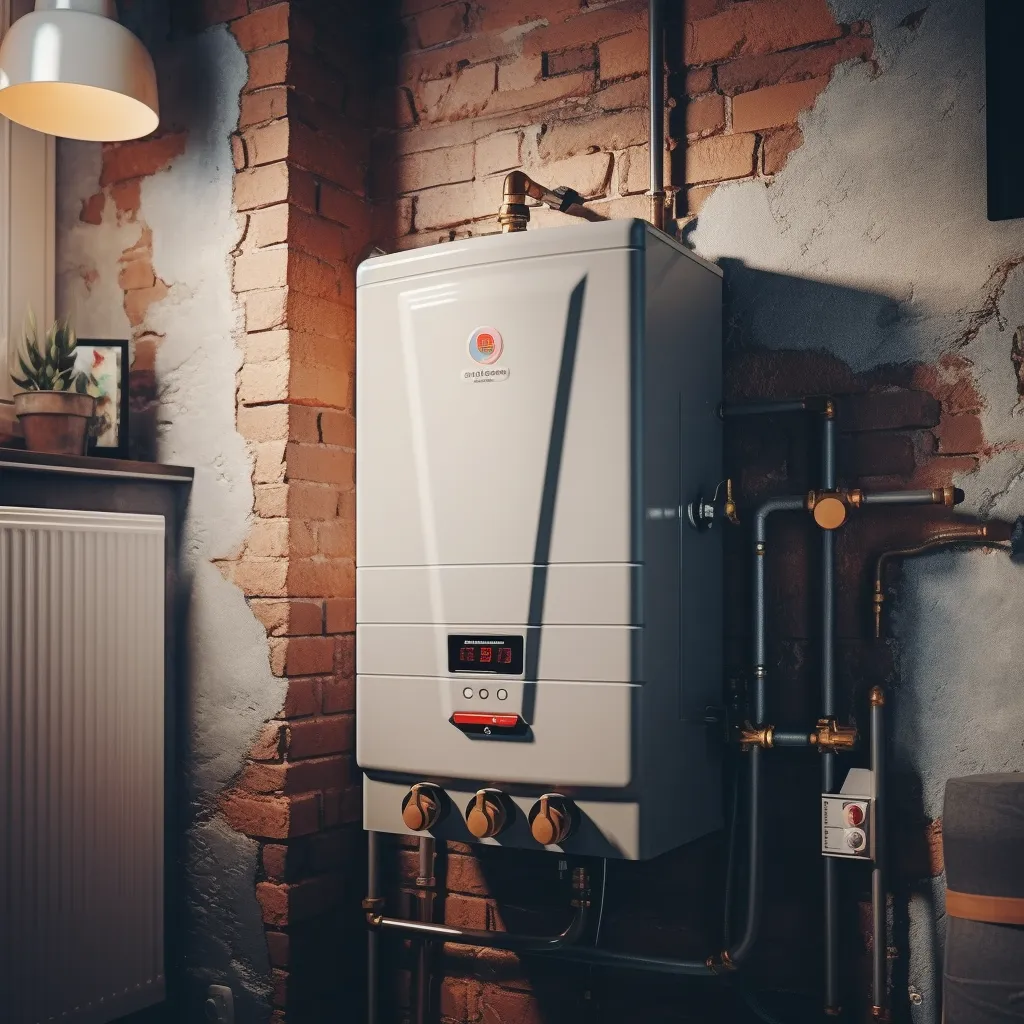
Here's what a trustworthy and experienced professional will do
Our team of skilled technicians is trained and experienced in all aspects of water heater replacement. We understand the importance of a functioning water heater in your home, which is why we strive to provide prompt and efficient service, ensuring minimal disruption to your daily routine.
Whether you're experiencing issues with your current water heater or simply looking to upgrade to a more efficient model, we can assess your situation and provide you with the best solution.
One of the first steps in getting a new water heater is getting an estimate. Our team will provide you with a detailed estimate that includes labor, materials, and applicable taxes. We believe in transparency and want you to have a clear understanding of the costs involved in the water heater replacement process.
Our knowledgeable team will guide you through the process of selecting a new water heater, taking into account the size of your household and your hot water usage patterns. We understand that everyone's water heating needs are unique, and we're here to ensure you find the perfect fit.
Our technicians are experienced in seamlessly transitioning from removing your old water heater to setting up and installing the new one.
We only use high-quality parts and equipment for our water heater replacements. This allows us to deliver top-notch results that are built to last. Whether you're dealing with a faulty water heater or simply looking to upgrade to a more energy-efficient model, we have the knowledge and expertise to recommend the right solution for your specific needs.
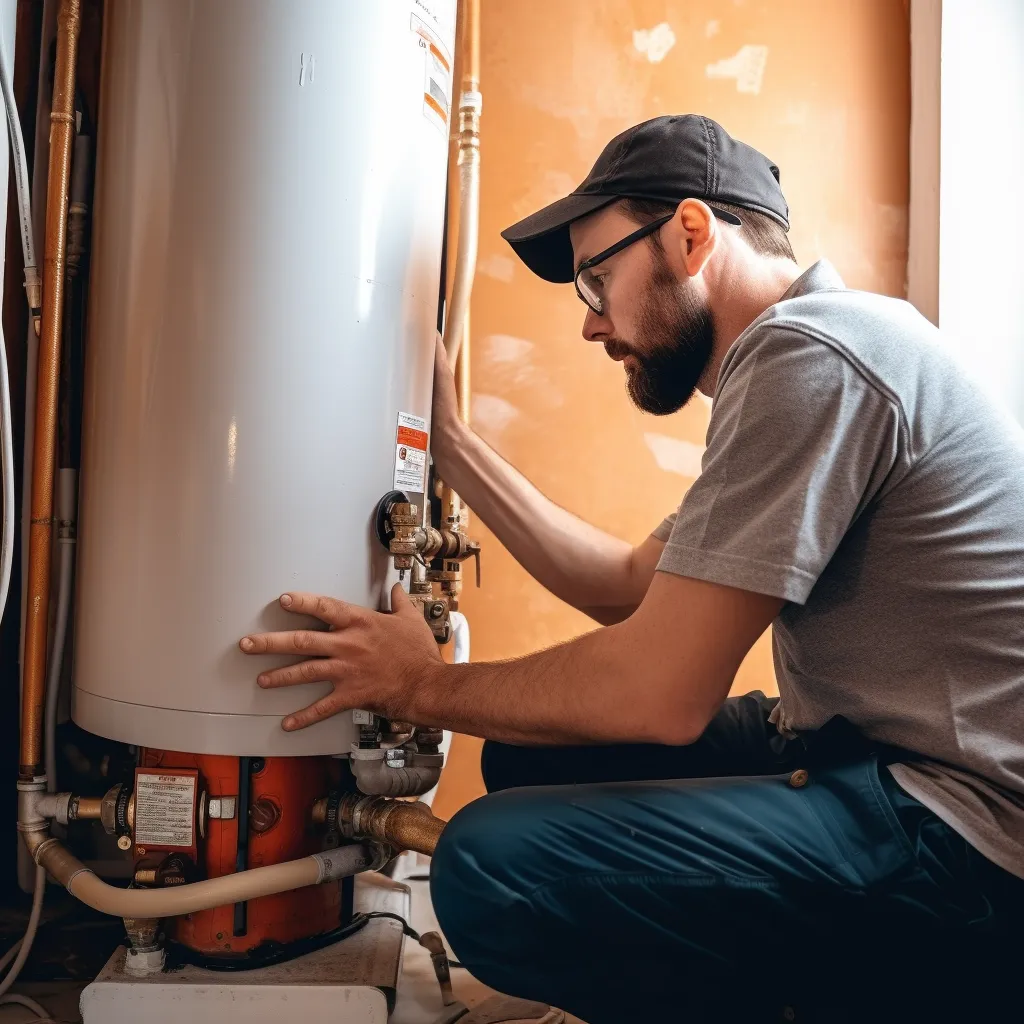
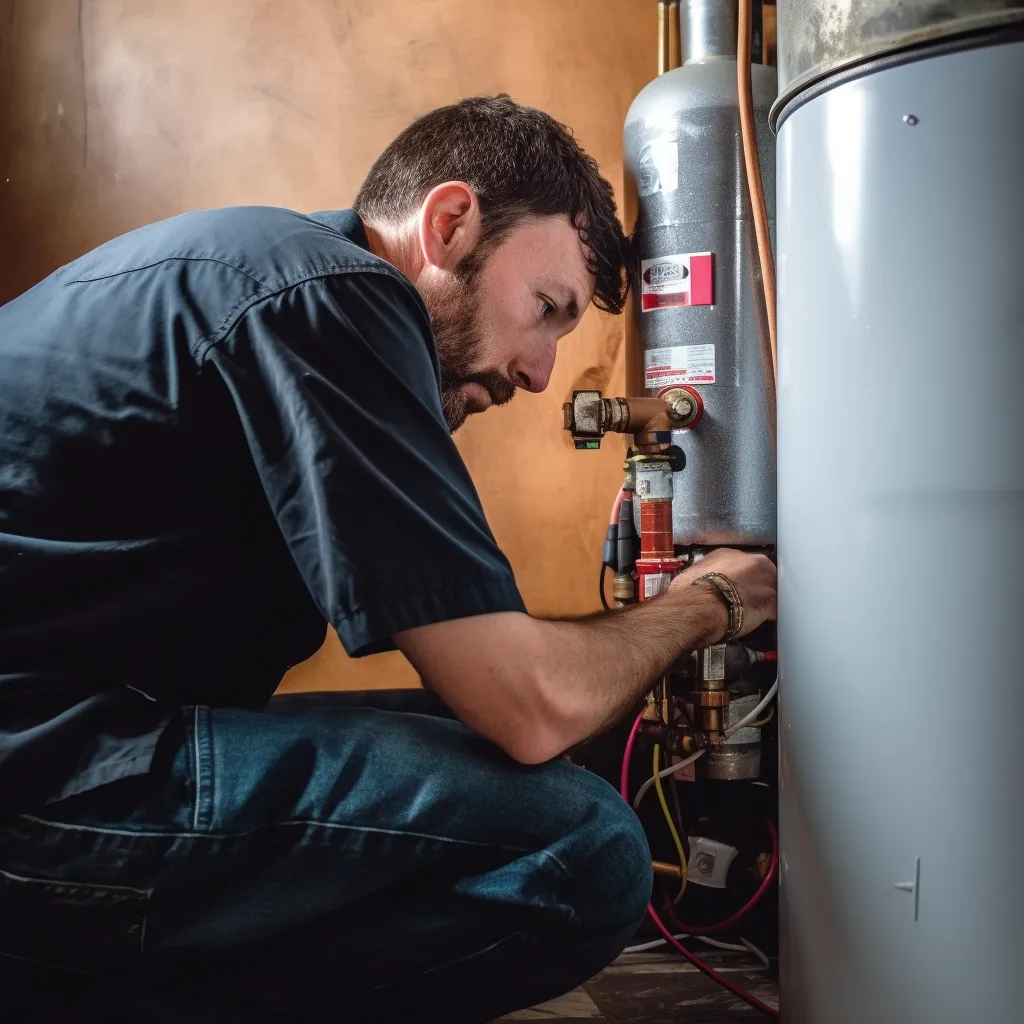
Water heaters don't last forever
It is important to know when to replace or maintain your current unit. The lifespan of a water heater usually falls between 6 to 12 years, with actual longevity depending on factors like usage and efficiency. If your water heater is nearing the end of its lifespan or showing signs of deterioration, it may be time to consider a replacement. When calculating the cost of water heater replacement in Plano, there are several factors to consider. The type and size of the water heater will play a role, as will the expenses associated with installation and maintenance. Additionally, there may be potential savings to be had through rebates, incentives, or extended warranties. To make an informed decision, it is crucial to conduct thorough research. Compare different water heater models, taking into account their energy efficiency, features, and reliability. This will help you choose the right unit that meets your needs and budget. Seeking advice from a licensed professional can also be highly beneficial when it comes to water heater replacement in Plano. Their expertise can provide valuable insights and ensure that the installation process goes smoothly. Moreover, they may offer advice on maintenance practices that can help prolong the lifespan of your new water heater, saving you time and money in the long run.
Contact Us
GET IN FULL TOUCH
PHONE (469) 838-5525
EMAIL:
jason@waterheatersinplanocom
Evolution Plumbing
Plano, TX 75023
Texas Plumbers License: M-44821
